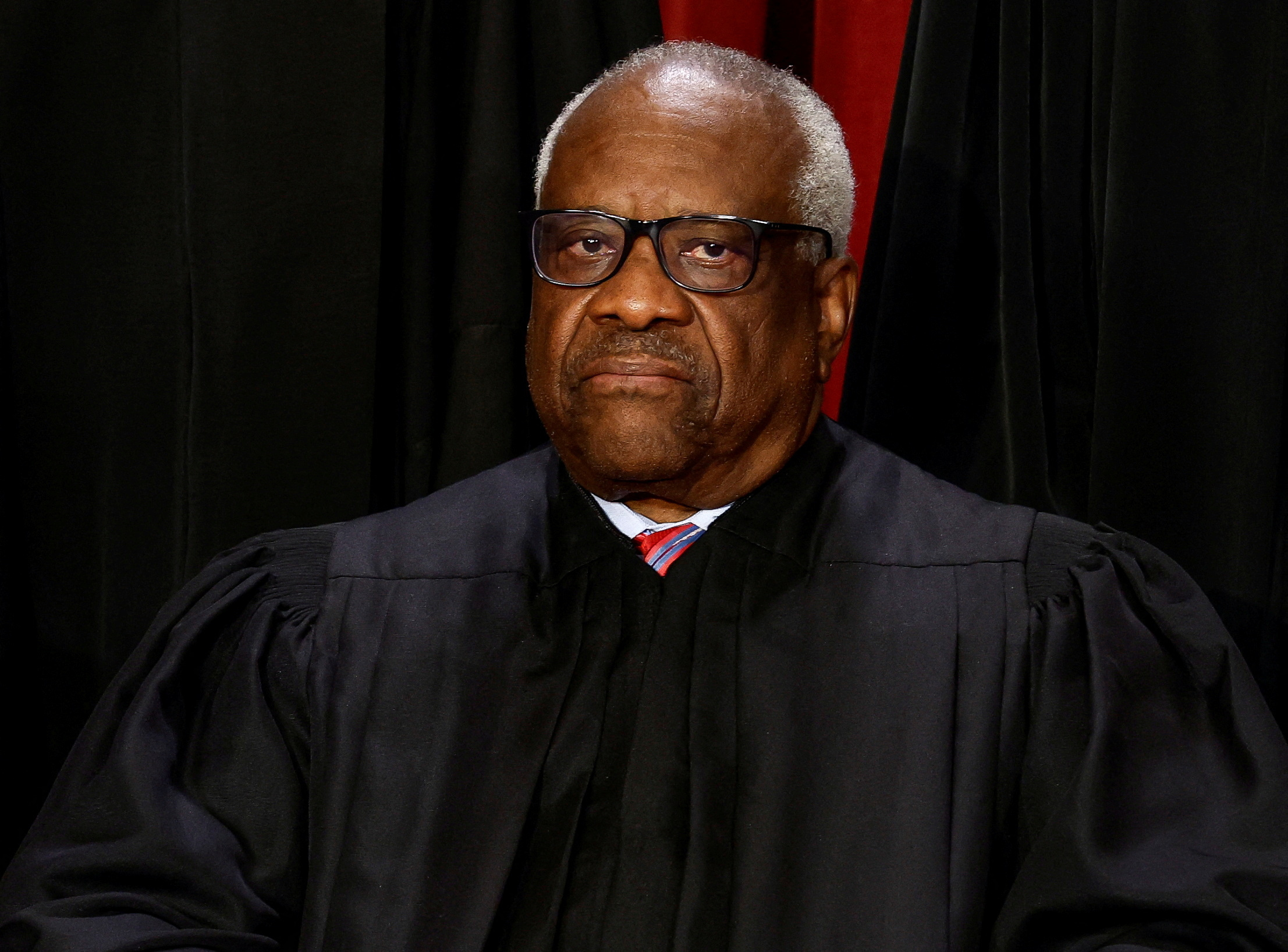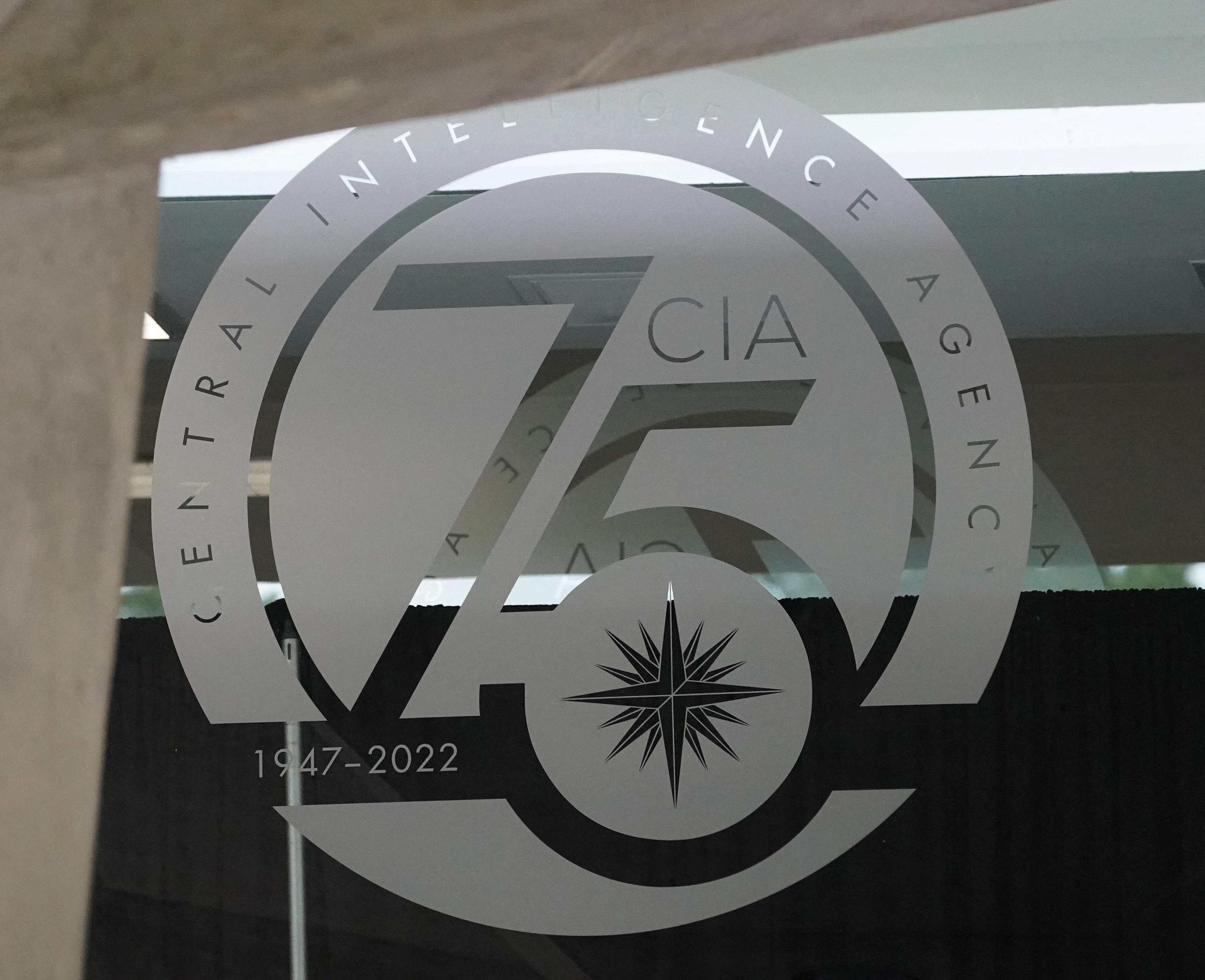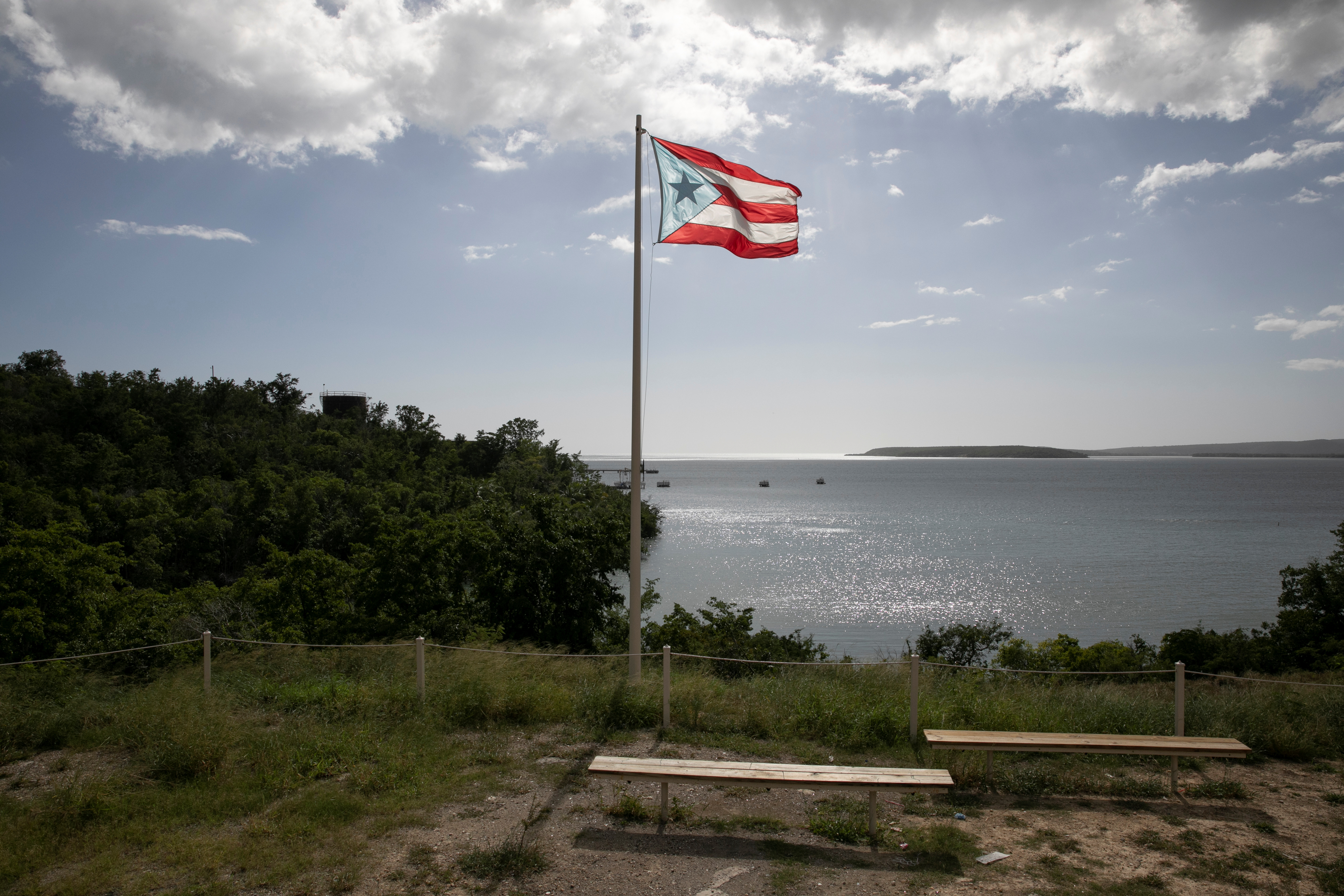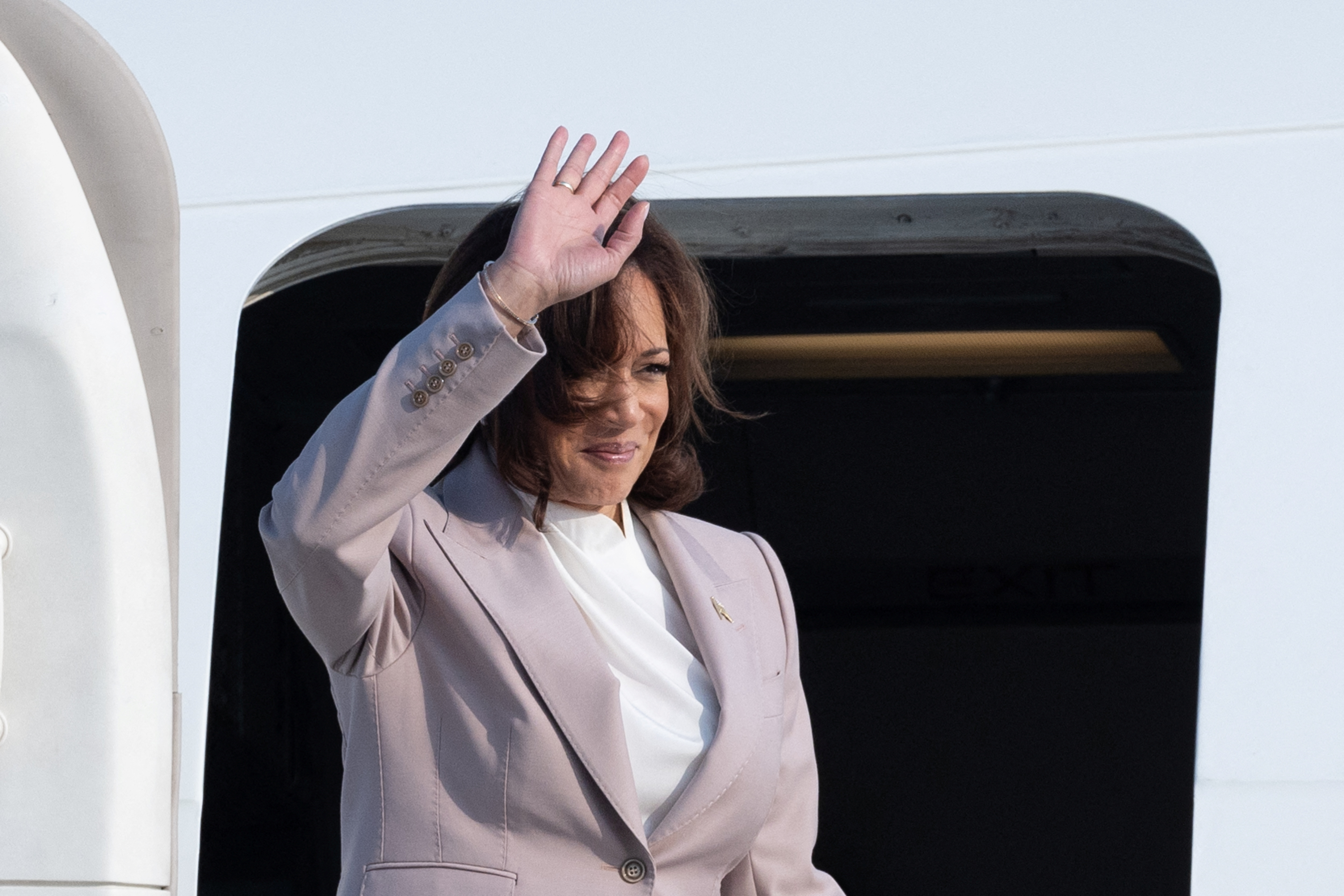US Supreme Court's Thomas flew on GOP donor's jet, cites security risks

U.S. Supreme Court Associate Justice Clarence Thomas poses during a group portrait at the Supreme Court in Washington, U.S., October 7, 2022. REUTERS/Evelyn Hockstein/File Photo Acquire Licensing Rights
WASHINGTON, Aug 31 (Reuters) - U.S. Supreme Court Justice Clarence Thomas accepted flights by private jet last year and cited security concerns around the court's controversial abortion decision to justify some of the private travel, according to a disclosure form released on Thursday.
Thomas listed 2022 private jet trips provided by Texas businessman Harlan Crow to or from Dallas, Texas, for conferences in February and May, and to a property in upstate New York's Adirondack Mountains in July, the delayed filing showed.
Thomas has faced scrutiny following revelations that he had not disclosed luxury trips paid for by the wealthy benefactor.
He said in the document that he chose to fly by private plane in May 2022 because his "security detail recommended noncommercial travel whenever possible" due to the "increased security risk" following the leak that month of an opinion indicating that the court would overturn the constitutional right to abortion.
The following month, Thomas and other members of the court's conservative majority overturned the landmark 1973 Roe v. Wade ruling that had legalized abortion nationwide, in a decision that largely tracked the leaked version.
The disclosure forms filed by Thomas and fellow conservative Justice Samuel Alito come two months after the court's other seven justices' disclosures were released in June.
The court has recently confronted numerous questions about the justices' ethical conduct since the news organization ProPublica reported on Thomas' failure to disclose luxury trips and real estate transactions involving Crow.
An August Reuters/Ipsos poll found that just 39% of Americans said they had a positive view of the Supreme Court, down from 52% who cited a favorable view in a June 2022 poll, before the abortion decision.
In Thursday's filing, Thomas also disclosed a 2014 sale to Crow of his mother's house and two other houses in Savannah, Georgia, owned by Thomas and his family members for $133,000. Thomas said his failure to include the transaction in a prior financial disclosure was "inadvertent."
He disclosed other accounts that had been left out of prior reports, including personal bank accounts that had a combined balance of between $100,000 and $250,000 last year and a life insurance policy belonging to his wife Ginni Thomas that was valued at under $100,000 in 2021.
He also corrected the name of his wife's family real-estate holding company, which had been mislabeled in previous reports.
Both Thomas and Alito had been granted extensions to file their mandatory annual reports listing outside income and gifts, as required for certain senior government officials.
Alito's filing showed nearly $30,000 in income for teaching at two law schools and a free trip to Rome to speak at a conference.
NO BINDING CODE
Unlike other members of the federal judiciary, the life-tenured justices have no binding code of conduct, though they are subject to certain financial disclosure laws.
Food and other "personal hospitality" such as lodging at an individual's residence is generally exempt from disclosure. The Judicial Conference, the policymaking body for the federal judiciary, has tightened its regulations to require disclosure of private jet trips.
Thomas's lawyer Elliot Berke said the justice did not wilfully violate ethics guidelines and said the reporting errors were inadvertent.
In a statement, Berke denounced the criticism as “motivated by hatred for his judicial philosophy, not by any real belief in any ethical lapses.”
According to ProPublica, Alito failed to disclose a 2008 trip to Alaska on a private jet belonging to a billionaire hedge fund manager whose business interests have come before the court.
The Associated Press reported that aides to liberal Justice Sonia Sotomayor promoted sales of her books in conjunction with her speaking events.
Following those revelations, the Senate Judiciary Committee in July approved a Democratic-backed bill that would mandate a binding ethics code for the justices. Given Republican opposition, the bill has little chance of becoming law.
Reporting by Andrew Chung in New York and John Kruzel in Washington; Editing by Scott Malone and Andy Sullivan
Our Standards: The Thomson Reuters Trust Principles.




